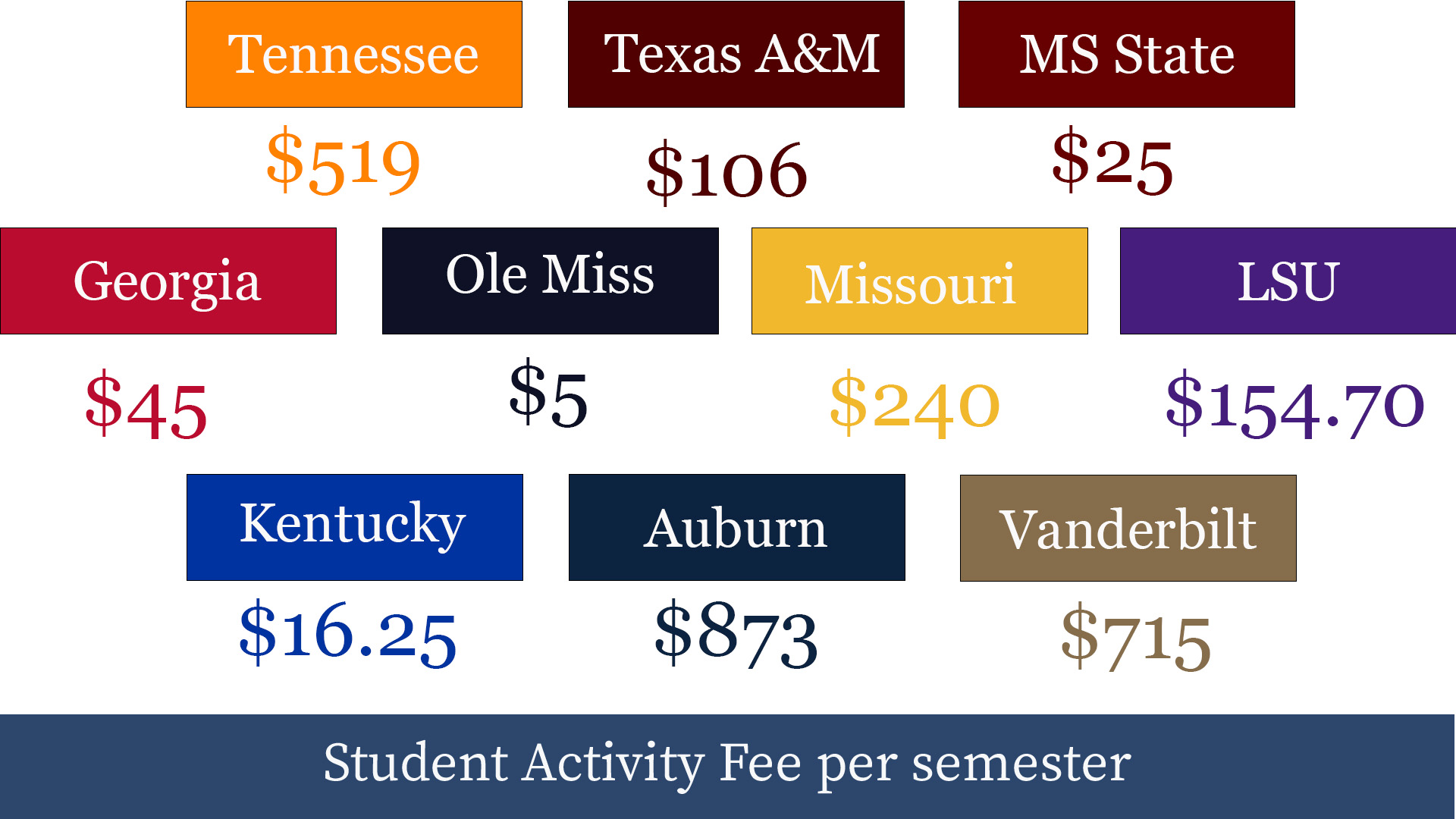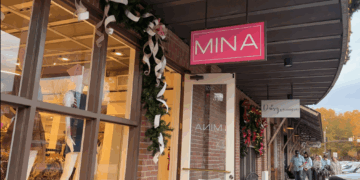The Ole Miss Student Activity Fee team has launched a campaign urging students to pass ASB’s proposal to change the Student Activity Fee from $5 per semester to $2 per credit hour per semester in their upcoming spring 2022 election next Tuesday.

According to ASB Treasurer Alex Mabry, if the Student Activity Fee (SAF) remains at its current rate, the funds will be depleted in two and a half years at the current rate of spending.
Ole Miss’s SAF was designed in 2015 to be a resource for Registered Student Organizations (RSOs) that are in good standing with the university. Each semester, both undergraduate and graduate students pay a $5 fee that goes to a collective fund. The fall deposit was $93,340, which was added to $60,000 the fund had in reserve, and the total spending for the fall was $106,000. In the spring $50,000 has been spent so far. According to Mabry, only 25% of the 330 RSOs on campus use the SAF Fund.
The SAF Fund was originally intended to be a first come, first serve resource for all RSOs. However, it has now expanded to a guaranteed resource, only because most RSOs are not aware of the SAF Fund. Some RSOs are RebelTHON, UM Gospel Choir, UM Rocket Team and the Nepalese Student Association.
The SAF Fund is overseen by the ASB treasurer, however ASB is not allowed to use the fund.
Members of ASB also are not allowed to campaign for such a fund fee increase, so Mabry has taken a leave of absence from her position. This is why she launched the Ole Miss SAF campaign.
“I won’t lie to you and say that I like campaigns,” Mabry said. “They give me incredible anxiety. So, I wouldn’t be doing this if it wasn’t important or I didn’t think it was worthwhile. It’s truly a passion project of mine.”
Mabry was elected ASB treasurer in March 2021. With her campaign, she intends to educate students on the SAF’s purpose and promote the funds to RSOs in general, because not all of them utilize the SAF.
“That’s an incredibly low percentage for something that every single student, both graduate and undergraduate, is paying for,” Mabry said. “It’s incredibly underutilized, and even with that low utilization, we are still going to run out of funds.”
According to the Ole Miss SAF, 49 RSOs used the SAF Fund for Diversity, Equity and Inclusion efforts, public events and professional development seminars last fall.
Mabry became aware of the impact of the diminishing SAF funds when she traveled over the summer to the SEC Exchange, a conference for SEC student governments.
Auburn University has the highest SAF of $873 per semester, with Vanderbilt University having the second highest at $715. The second lowest SAF comes from the University of Kentucky, which is $16.25 per semester.
“Our SAF is the lowest. We are not even competitive with the rest of the SEC, and there is so much potential for what we can do,” Mabry said. “I love this with my whole soul. I know it is a great thing, and it isn’t even an opinion thing. The numbers truly speak for themselves.”
This is not the first time ASB has campaigned for a change to the SAF. In 2019, a campaign called Raise Five was launched, proposing for the SAF to be increased from $5 to $10. The proposal was not passed, with 63% of students voting against an increase.
Eliza Peters, a journalism major, was a freshman the last time the SAF was brought to a vote. At the time, she was indifferent to what was happening regarding the SAF. Now, as a junior, she said she sees the importance of the SAF and plans to vote in favor of an increase.
“I don’t want to pay more money. I already pay enough to go to school here. And as an out-of-state student, that’s a lot too. But if you’re paying, say, for 15 credit hours, it’s 30 bucks. I feel like if that’s gonna bring more light to your campus and maintain student engagement, I think it’s really important,” she said.
Senior biological sciences major Martha Brinson said she was surprised that the proposal was not passed in 2019, but feels this was due to a lack of awareness from students surrounding the SAF and the intentions behind a proposed price increase.
“These are important things that are being put to use with the SAF, not only for fun things but for necessary things,” Brinson said. “It is to better support our community.”
ASB’s Director of Public Relations Georgiann McCullough also resigned from her position at the beginning of February to be Ole Miss SAF’s Campaign Manager.
“I just believe that RSOs are the heart and soul of this campus,” McCullough said. “Without them, I don’t know what we would do.”
Ladesha White, a senior transfer student and journalism major, was unaware of the SAF vote until approached for her thoughts.
“I would be fine with it if it means more activities. I would vote yes,” she said.
If the proposal passes, Mabry has a vision for the SAF to become a self-sustaining fund that can supplement all students, regardless if they are in an RSO or not.
“We would love to one day see it be able to be used for individual projects,” McCullough said. “Let’s say I, as a student, wanted to go do something cool. I wouldn’t need an organization behind me. I could just apply it to myself. It’s just impossible with the amount of money that we have right now.”
Students can vote in ASB’s spring 2022 election on Thursday, March 8, from 7 a.m. to 7 p.m. through their MyOleMiss account. You can follow Ole Miss SAF on Instagram @olemisssaf and find their table in front of the Student Union throughout the next week.
Violet Jira contributed reporting.






































